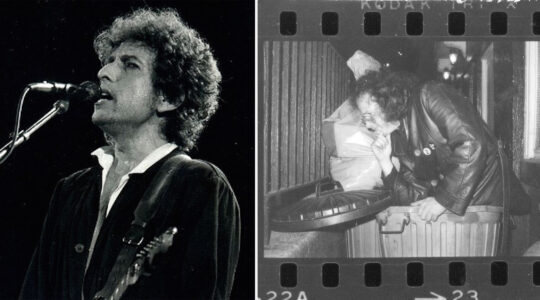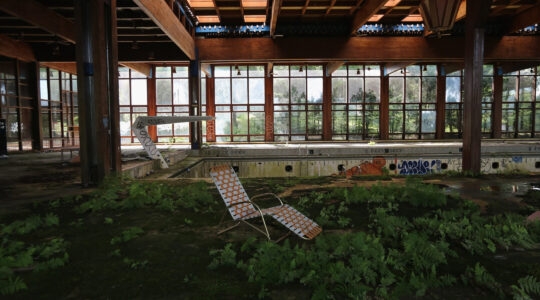The Jewish Council for Public Affairs Plenum’s Sunday discussion of "How Big a Tent for Pro-Israel Advocacy?" marked the debut of a new face inside the tent. It was the first time the 10-month-old J Street, which has marketed itself as an alternative to what it feels is the more hawkish views of mainstream Jewish organizations, had been invited to participate in a conference held by one of those mainstream groups.
The invitation sparked a spirited, but civil, debate about how the Jewish community should discuss Israel — out in the open with lots of different voices, or behind closed doors so it can present a consensus position to the wider world?
J Street executive director Jeremy Ben-Ami favored the former. He argued that the community should shun useless labels like "pro-Israel" and instead have a vibrant discussion about what is best for the Jewish state — arguing that "orthodoxy" of opinion on Israel was "dangerous" and "sowing the seeds of destruction" for the Jewish community.
Anti-Defamation League deputy national director Kenneth Jacobson responded that there was plenty of debate about Israel in the American Jewish community, but it happened in places like the JCPA Plenum and the Presidents’ Conference.
The community has thought about the best way to be effective and have influence, said Jacobson, and the answer was to have a "consensus position" when it goes to Congress.
"That’s not to suggest that all these differences don’t exist," he said, but there’s a "difference between the right to think as an individual and the responsibility of the community to present advocacy in a way that will have an impact."
And Jacobson said he believes that decision, and the advocacy that it produced, has been an "unbelievable success." If everybody goes their own way, he said, that success will diminsh.
Meanwhile, the third member of the panel, Endowment for Middle East Truth founder and director Sarah Stern argued that there was a "tremendous distinction between lobbying from the left and right," she said.
Lobbying for "more security" for Israel and for "not taking risks that might be suicidal" is not the same as "encouraging risks," which could "whet the appetite" of those who want to destroy the Jewish state, Stern said.
Jacobson flatly rejected the notion that lobbying from the right was any more legitimate that lobbying from the left.
Both Stern and Jacobson did argue that those who want to participate in the community’s debate about the Jewish state should at least be grounded in some minimal amount of education about Israel and the Jewish world.
Ben-Ami, though, said the community can only benefit from bringing more people into the discussion, saying that young Jews are turned off when they are given just one opinion on the conflict and that Hillels and other such groups should have programs, for instance, that include both a representative from the Israeli consulate and a conscientious objector from the IDF.
"There is a very, very serious anti-israel movement" in the country and "the best answer to it is for the Jewish community to be far more open," he said. "There will be more people in our camp if we allow people to hear debate, openness, and criticism, rather than prepackaged answers."
Jacobson countered that consensus is a policy that has worked, but that the "style and mentality of how we speak to people" — such as "when people ask you questions, don’t always take the right wing position" — can be improved.
The crowd of about 75 people seemed to include supporters of both viewpoints, and afterwards Ben-Ami was pleased by the debate his appearance had fostered.
"This is the kind of discussion we need to have," he said. "If college students saw this, they’d be thrilled."
JTA has documented Jewish history in real-time for over a century. Keep our journalism strong by joining us in supporting independent, award-winning reporting.





